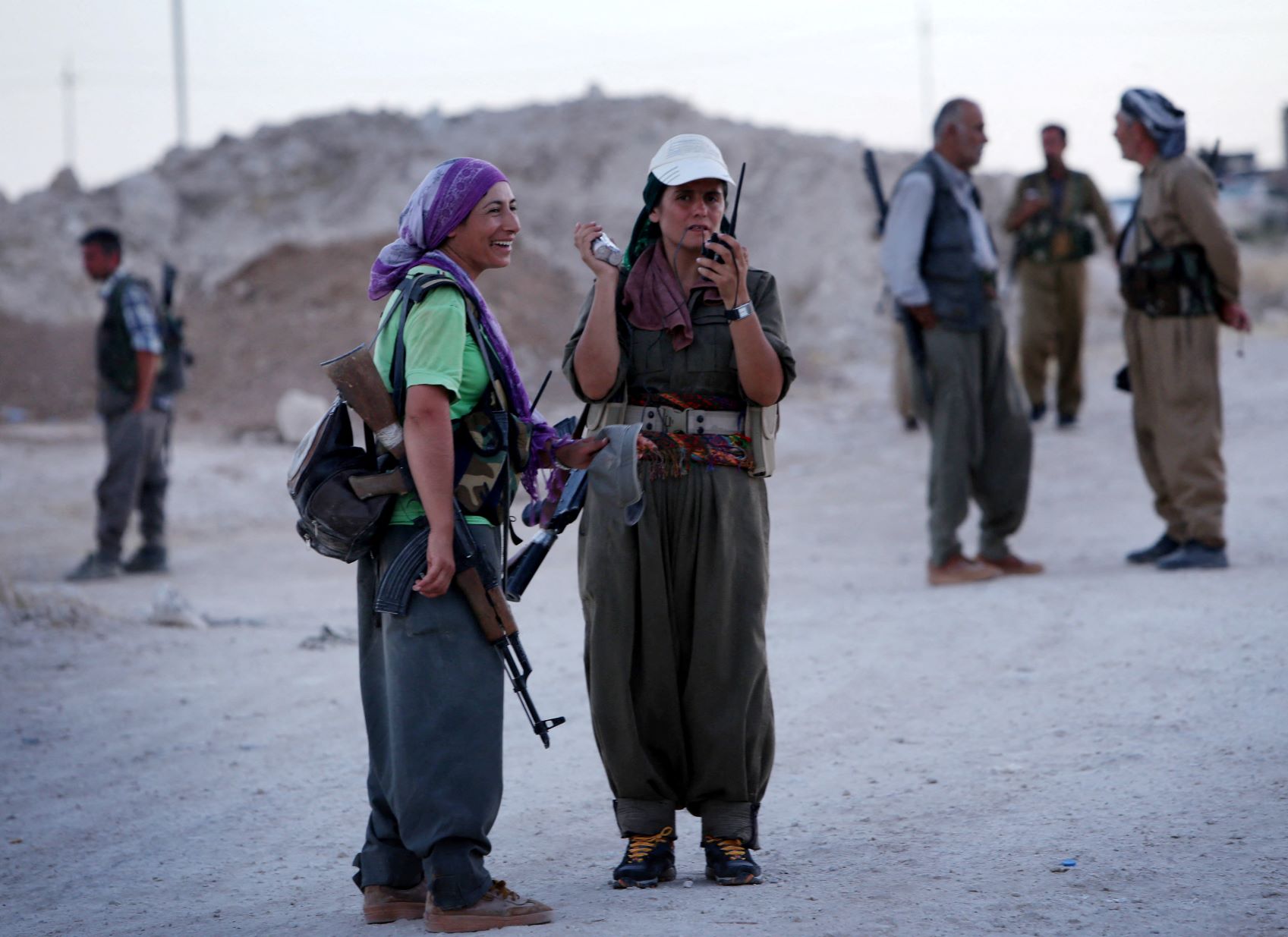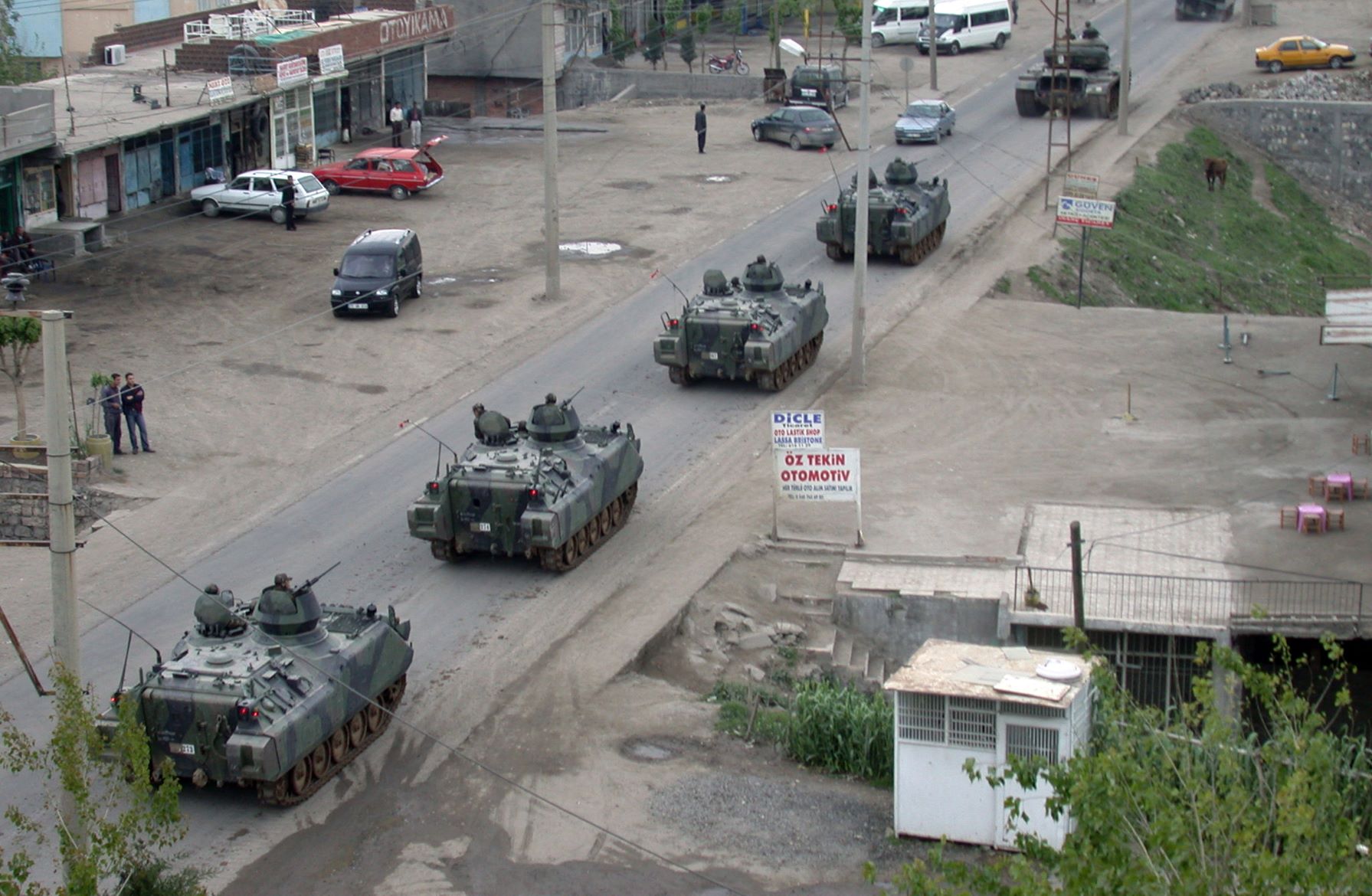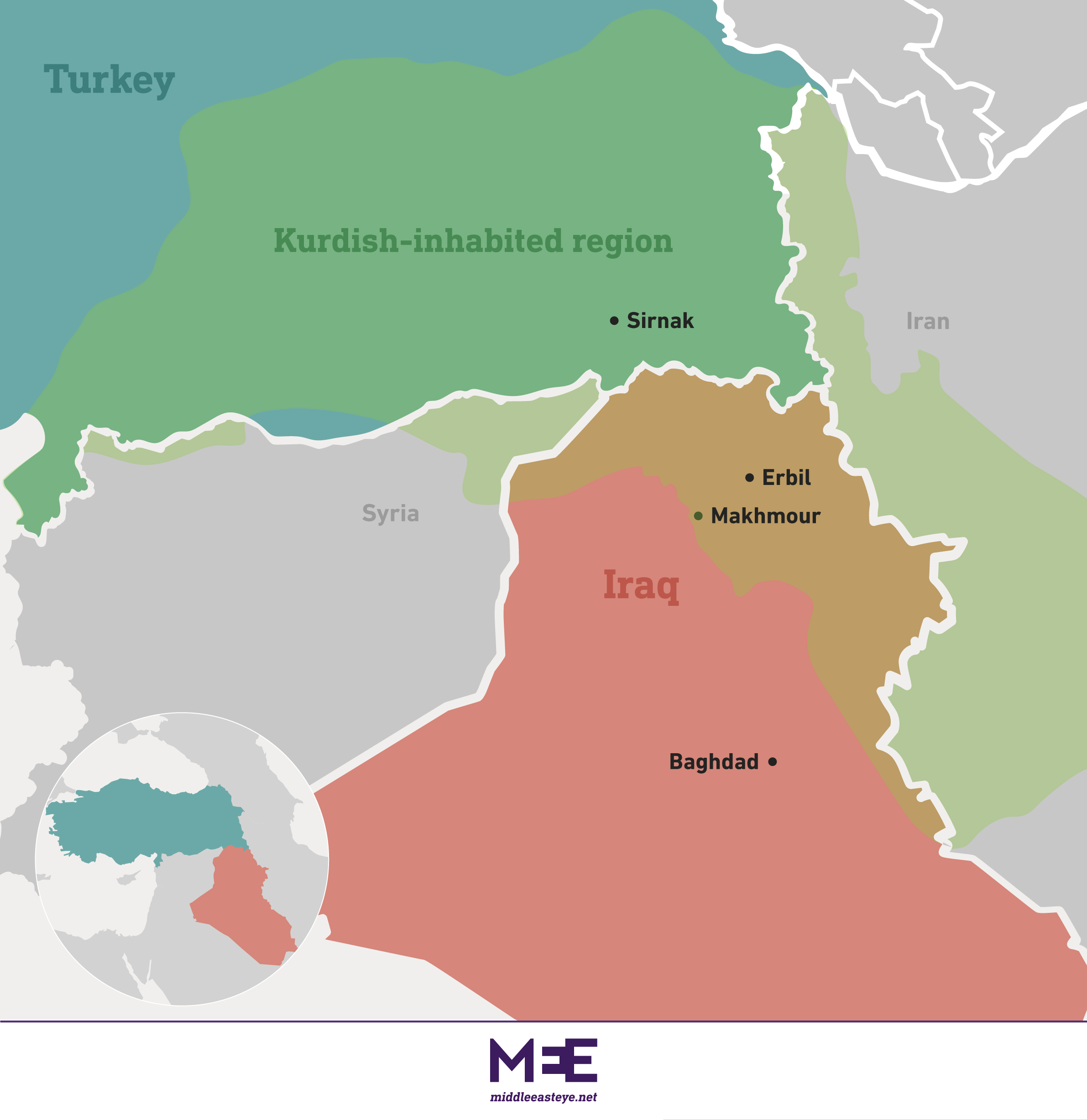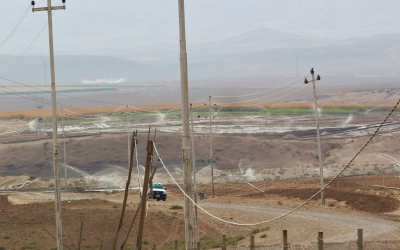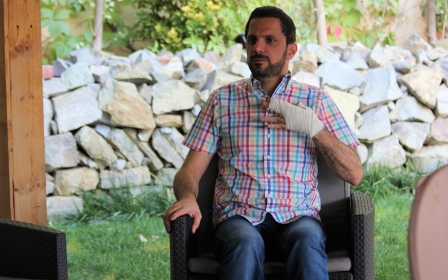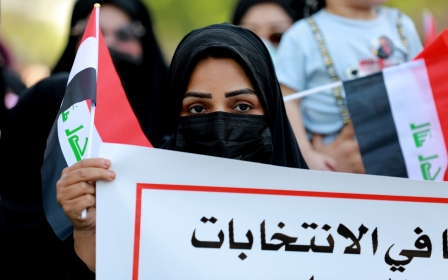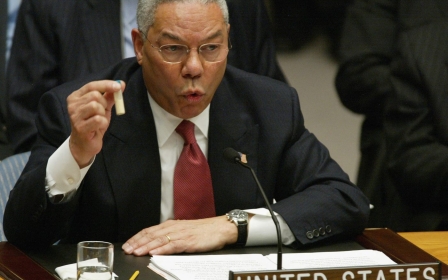Iraq: Kurdish refugees from Turkey face poverty, repression and violence
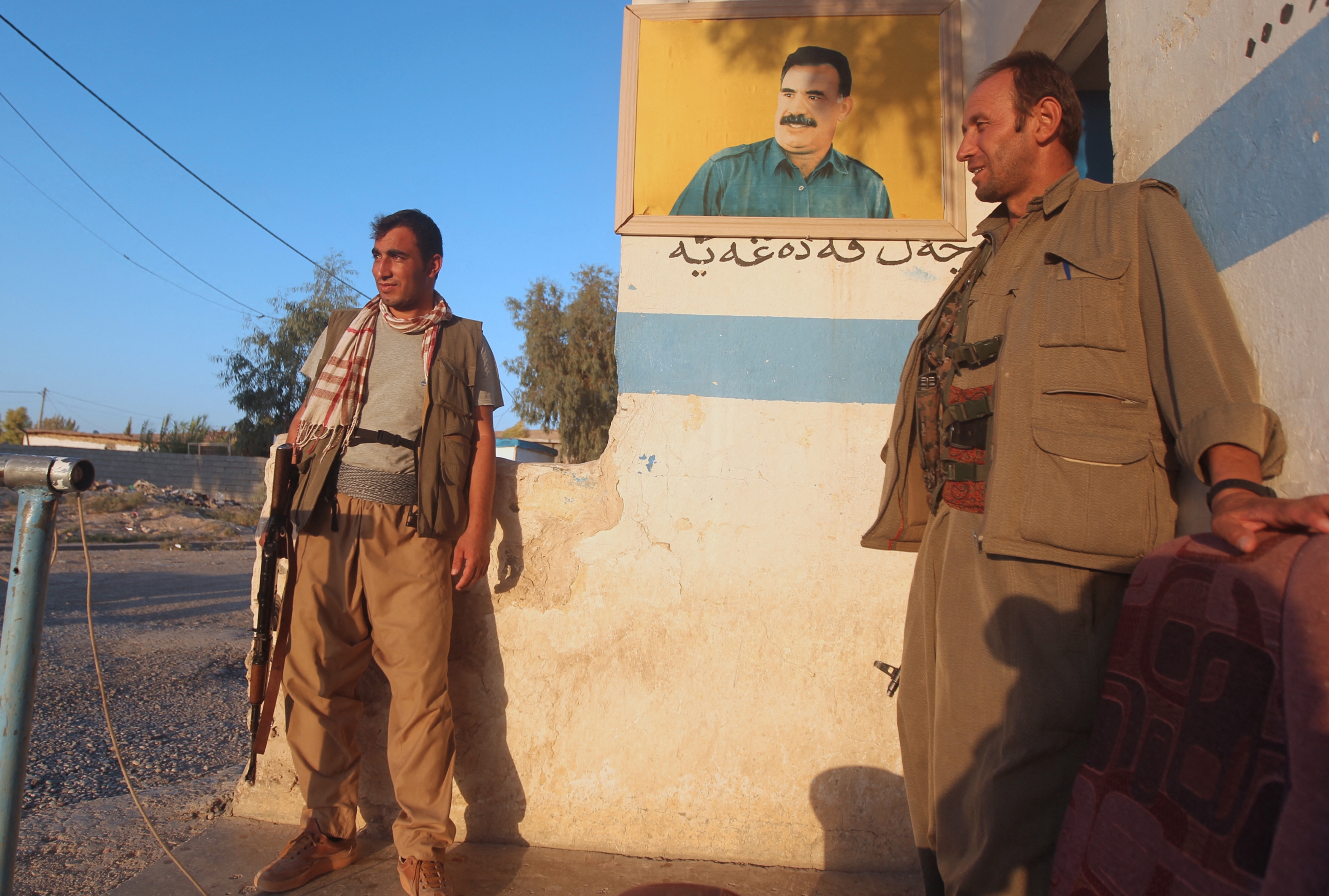
Ahmet is a Kurd who lives in the majority-Kurdish town of Makhmour in northern Iraq. Anyone with a keen ear for dialects, however, would note that Ahmet's accent and manner of speaking stand out from the other Kurdish residents of the area.
That is because Ahmet was one of thousands of Kurds who fled southeastern Turkey in the 90s during the height of the conflict between the Turkish state and the Kurdistan Workers Party (PKK).
'They say: let them die there, they're fucking PKK'
- Ahmet, Makhmour camp resident
In 1984, following a military coup in Turkey which saw new restrictions banning any public expression of Kurdish identity, the PKK launched their guerilla campaign against the Turkish state.
Led by the now-imprisoned Abdullah Ocalan and sporting a hardline Marxist-Leninist ideology, the PKK's war eventually saw more than 40,000 people killed and vast swathes of southeastern Turkey (which is majority Kurdish) depopulated, as the Turkish military destroyed villages in an attempt to remove any possible safe havens for the group.
Millions fled their homes, pouring both into Turkey's larger cities and across the border into Iraq's Kurdish region. Though the PKK have maintained their headquarters in Iraq's northern Qandil mountains for decades, the relationship with the local Kurdish authorities has not always been harmonious.
New MEE newsletter: Jerusalem Dispatch
Sign up to get the latest insights and analysis on Israel-Palestine, alongside Turkey Unpacked and other MEE newsletters
Originally from Sirnak province, Ahmet was given sanctuary in Iraq by then ruler Saddam Hussein, a somewhat ironic move considering Saddam's notoriety for killing and repressing Iraq's own Kurdish population.
"We had to run, we didn't have any choice, we had to run here, to Kurdistan," he said, speaking to Middle East Eye on a street corner in Makhmour.
"They gave us 15 days notice, either to flee and run to somewhere else or to be their man and kill our brothers. Or the third option is that you'll all be dead."
His friend - also a Kurd, also originally from Sirnak and also called Ahmet - chimed in with agreement.
"They really suppress us, they try from everywhere. They say 'oh they're PKK and they need to be dead. Even when they send help from Erbil, they stop it at the checkpoints," he said, referring to the capital of the autonomous Kurdistan Regional Government (KRG) which controls much of northern Iraq and has, at best, a tense relationship with the refugees from Turkey.
"They say: 'let them die there, they're fucking PKK.'"
'A really, truly bad life'
Both Ahmets now live in a refugee camp just outside the town of Makhmour. Established in 1998 in tandem with the UN, the camp contains around 12,000 inhabitants, all former Kurdish citizens of Turkey.
The camp has been branded an "incubation centre for terrorism" by Turkish President Recep Tayyip Erdogan, and the Turkish government has long pushed for the camp's closure.
Makhmour itself lies in an area of Iraq known as the "disputed territories", contested by both the government in Baghdad and the KRG.
Compared to the clean and well-maintained streets and buildings of Erbil, Makhmour's roads are covered in detritus and the infrastructure is rundown. Flies buzz around the rubbish lying in the small canals of waste water that collect at the sides of the pavements.
Conditions in the camp are even starker - Ahmet told MEE that a number of children had died as a result of poisonous animal bites and stings and said Baghdad regulary cuts off electricity. Unemployment, disease and lack of access to drinking water are also major problems.
A few years earlier, Makhmour was on the frontline of the battle against the Islamic State group. The town is about a 100km drive from Mosul, the former headquarters of IS in Iraq. Many of the locals, including residents of the refugee camp, were involved in the fight against the militant group that saw them pushed back after Baghdad's forces collapsed in the face of their assault.
In the aftermath, Makhmour, like many other areas in northern Iraq, was left in the hands of the KRG's Peshmerga forces (the autonomous region's military wing) and other Kurdish groups. In 2017, following a referendum on independence for the Kurdish regions launched by the KRG - which controversially included Makhmour, Kirkuk and other Peshmerga-controlled territory - Baghdad, with Iranian support, recaptured the disputed territories.
Throughout it all, the residents of the refugee camp have weathered the crises much as they always did. Life was never easy for them and, until recently, most were able to deal with the myriad challenges that Iraq so often throws up.
'If it goes on like this, I have to leave, I can’t stay here'
- Hassan, Kurdish refugee from Turkey
“It’s such a really, truly bad life. Safety, there is no safety," said Hassan, a resident of the camp who came with his family from Sirnak when he was just a baby.
A taxi driver by trade, Hassan explained while sipping tea outside a cafe how the KRG had increasingly been tightening controls on him and others in the camp, not least by effectively banning them from travelling to Erbil, previously an economic lifeline for them just an hour's drive north.
"They don’t let us go anywhere, especially Erbil. If someone was about to die, maybe they would let them go to the hospital," he said.
“It’s really hard, we have to travel to Baghdad and those areas to get some job...it’s harmed all of us.”
He added that, after more than two decades of precarious living in the camp - enduring poverty, poor conditions, militant attacks, Iraqi in-fighting and Turkish air strikes - the pressure was finally getting too much.
“If it goes on like this, I have to leave, I can’t stay here," he said, though he conceded he wasn't exactly sure where he'd go.
“So many people are starting to leave now.”
Depopulated villages
Since the 90s, the Kurdistan Democratic Party (KDP) and the Patriotic Union of Kurdistan (PUK) have been the dominant forces in Iraqi Kurdistan, a situation made official with the establishment of the KRG after the 2003 invasion that overthrew Saddam Hussein.
While the centre-left PUK, which controls the Suleimaniyah region, has generally maintained good relations with the PKK, the conservative, tribal KDP (which is led by Massoud Barzani and controls Erbil) has often been hostile to the group - indeed, the PKK was founded in 1978 in part as reaction to the then-perceived ideological and tactical failings of the KDP.
A particularly sore point for the PKK and other refugees has been the KDP's close relationship with Turkey, which has seen Erbil's shops and streets choked with Turkish products and businesses.
Sardar, whose family left Turkey when he was nine, said he and his family had always felt welcome in Makhmour, despite all the politics involved.
“We were pushed out from there – they told us either you become [Turks], not Kurds or nothing, or you can go to Kurdistan in Iraq with Barzani," he said.
Now, he said, the camp residents and Makhmour residents were "like one family".
"We haven’t faced any problems since 1999. We never had any issues," he said.
One local storekeeper, who flagged down Sardar's car as he drove past, concurred: "They contributed in the fight against IS and they have masses of martyrs."
Sardar said that, despite the frequent references to the PKK's presence in the camp and the clear political support of a number of residents, none of the group's fighters were now based in the camp, which is "controlled by ourselves".
He said the only problem now was the closure of the Erbil road to them.
“All the labourers that were in Erbil were people from this camp, but now they don’t let us," he said.
“After the incident, they totally cut off the road.”
Diplomat assassinated
The "incident" Sardar referenced was the assassination of a Turkish diplomat in Erbil in July 2019.
On 17 July that year, gunmen ran into the HuQ Qabaz restaurant in Erbil and shot dead Osman Kose and two other Iraqi nationals, Neriman Osman and Beshdar Ramazan.
Though the PKK denied involvement in the attack (despite praising the attacker for killing a "blood sucker") the aftermath saw the KDP heavily restricting the movements of residents of the Makhmour camp, which is seen by many as a major hub for the PKK in Iraq, in a move condemned by Human Rights Watch as "arbitrary".
Although the KRG has said that the new restrictions did not apply to students, those travelling for work or those seeking medical treatment, in practice camp residents say that their documents and permissions are regularly rejected at checkpoints.
Locals and doctors in the camp say at least two women have had miscarriages as result of being denied permission to cross checkpoints.
The crackdown has also coincided with a number of ongoing campaigns by the Turkish military against the PKK in northern Iraq. Apart from launching air strikes against suspected PKK targets in the mountainous areas - leading to many civilians casualties and displacement - they have also struck targets in the disputed territories, including Makhmour.
In June, the Turkish airforce struck the refugee camp, killing three people - including camp leader and alleged PKK official Selman Bozkir - shortly after President Erdogan warned his government would "clean up" the camp if the UN failed to do so.
“Five, ten minutes before some air strikes I was there. It was really, really bad. Two persons, two civilians, they got killed," said Hassan.
A second air strike targeted the camp in September, though no one was killed. Hassan said there was little they, or anyone else, could do regardless.
“Nobody can stop them. They don’t care if it’s a child, a woman, whatever," he said.
Restrictions on access to the camp have also been tightened. While originally NGOs, journalists and aid workers had easy access, within the last month new rules have been brought in, preventing entry to any non-residents who don't possess a signed document from Baghdad Operations Command.
The local leutenant commander in charge of approving entry to the camp (approval not given to MEE, as it happens) said that they had never had any problems with the PKK and the camp residents, but nevertheless there was enormous pressure on them to isolate the camp.
“That’s why I brought you guys here now, because of the pressure from Turkey and Erbil - they don’t let any organisations or journalists go to the camp except with this paper from the Baghdad Operations Command," he said, sitting in his office in the security building in Makhmour.
The lettering on the outside of the building still bears evidence of the rapid recapture by Baghdad in 2017, with the references to Kurdistan prized off.
The commander said that the primary issue with the camp was "political" and down to squabbling between Baghdad, Turkey and the KRG.
“Until now we have never had any trouble with the PKK forces. They don’t matter to us, the problem is political," he explained.
"Turkey and the KDP always push us to tell them to go out from here. But as far as now, we’ve never had problems with them.”
'How can we leave?'
There aren't many options left to the resident of the Makhmour refugee camp.
Within Iraq, they are caught between the Arab-majority areas of the country (where they face a lack of language skills and safety risks) and nearby Erbil, which treats them a security threat.
Some have attempted to make the often perilous journey to Europe. Many Kurds from Iraq have ended up stranded on the Belarus-Poland border in recent days. But this is only open to those with means.
'We had good relations with them, we were working in Erbil and those areas – but now we really want to go back [to Turkey]'
- Sardar, camp resident
"That takes a lot of money, 15,000, 20,000, 30,000 [dollars] for smuggling - we don't have money for eating, how can we leave?" asks Ahmet.
Attempts have also been made in past to agree a voluntary repatriation scheme for Kurdish refugees in Iraq to return to Turkey.
But Turkey's southeast has in recent years returned to the fighting that wracked it in the 80s and 90s. After the collapse of negotiations between the Turkish government and the PKK in 2015, conflict broke out between the Turkish state and armed groups in cities across the region, leaving thousands dead and much of the area in ruins.
In spite of this, for the first time in his life, Sardar wishes he and his family could return to their historic homeland in Sirnak, despite the return of violence and destruction to the region.
“Before we didn’t want that, until the KDP cut the road. We had good relations with them, we were working in Erbil and those areas – but now we really want to go back there," he said.
"But it’s not possible.”
Middle East Eye delivers independent and unrivalled coverage and analysis of the Middle East, North Africa and beyond. To learn more about republishing this content and the associated fees, please fill out this form. More about MEE can be found here.


